
The most recent edition of the international journal Women & Birth includes a discussion paper highlighting the role of the academic journal editor, an often misunderstood ‘job’ in academic scholarship [1]. The Bournemouth University authors of this paper are all three active as journal editors and sit on several editorial boards of scientific journals. The role of the journal editor may not be well known by budding authors. The purpose of this article is to explain the editor’s role in order to encourage future participation in reviewing and publication.
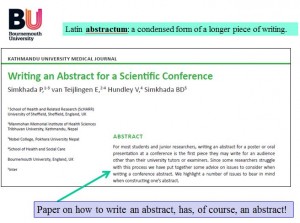
This latest paper is part of a series of articles written by staff in the Centre for Midwifery, Maternal & Perinatal Health (CMMPH) on academic writing [2-4]. These ‘how-to-do’ papers offer advice to junior researchers and postgraduate students. Several of the papers in this series are co-authored with Bournemouth University’s Visiting Faculty, including Dr. Brijesh Sathian (based in Nepal), Prof. Padam Simkhada (Liverpool John Moores University), Ms. Jillian Ireland (Poole Hospital NHS Foundation Trust), Prof. Debra Bick ( King’s College, London), Dr. Bibha Simkhada (Inter, Nepal) and Dr. Emma Pitchforth (RAND Europe, Cambridge). The range of publications includes papers on advice for article titles [5], tricky issues such as authorship and author order [6-7], selecting the most appropriate journal for your paper [8] and writing up qualitative research [9]. Whilst a further paper offers advice on writing an abstract for a scientific conference [10].
Edwin van Teijlingen, Vanora Hundley & Jenny Hall
CMMPH
Twitter: @EvTeijlingen @VanoraHundley @hallmum5
References:
- Hall, J., Hundley, V., van Teijlingen, E. (2015) The journal editor: friend or foe? Women & Birth 28(2): e26-e29.
- Simkhada, P., van Teijlingen, E., Hundley, V. (2013) Writing an academic paper for publication, Health Renaissance 11(1): 1-5.
- van Teijlingen, E., P.P., Simkhada, B., Ireland, J. (2012) The long & winding road to publication, Nepal Journal Epidemiology 2(4): 213-215.
- van Teijlingen, E., P.P., Rizyal, A. (2012) Submitting a paper to an academic peer-reviewed journal, where to start? Health Renaissance 10 (1): 1-4.
- van Teijlingen, E., Ireland, J., Hundley, V., Simkhada, P., Sathian, B. (2014) Finding the right title for your article: Advice for academic authors, Nepal Journal of Epidemiology 4(1): 344-347.
- van Teijlingen, E., Hundley, V., Bick, D. (2014) Who should be an author on your academic paper? Midwifery 30: 385-386.
- Hundley, V., van Teijlingen, E., Simkhada, P. (2013) Academic authorship: who, why and in what order? Health Renaissance 11(2): 98-101.
- van Teijlingen, E., Hundley, V. (2002) Getting your paper to the right journal: a case study of an academic paper, Journal of Advanced Nursing 37(6): 506-511.
- Pitchforth, E., Porter, M., van Teijlingen, E.R., Forrest Keenan, K. (2005) Writing up and presenting qualitative research in family planning and reproductive health care, Journal of Family Planning & Reproductive Health Care 31 (2): 132-135.
- Simkhada, P., van Teijlingen E., Hundley, V., Simkhada, B.D. (2013) Writing an Abstract for a Scientific Conference, Kathmandu University Medical Journal 11(3): 262-265.
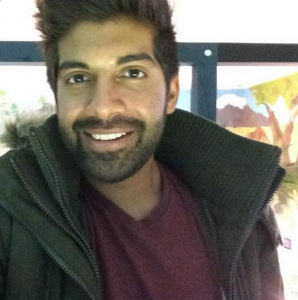
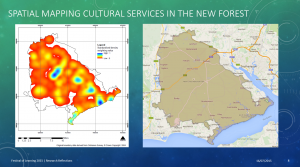
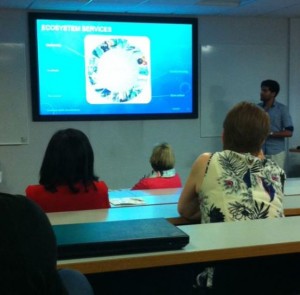
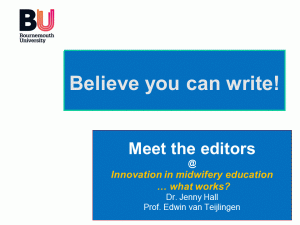
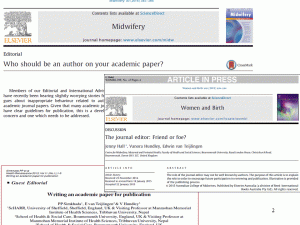

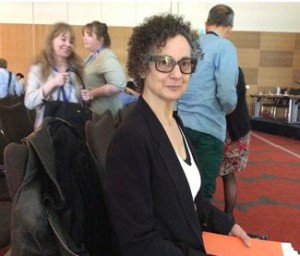
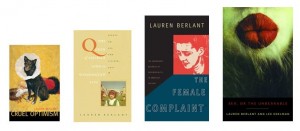



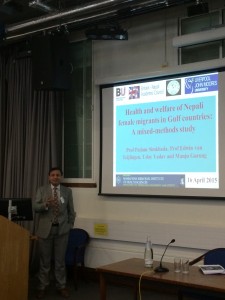


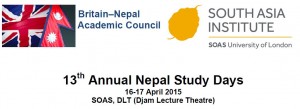
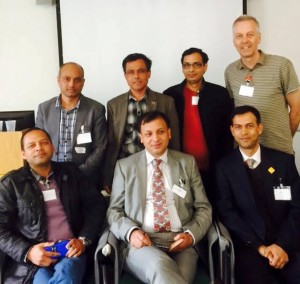

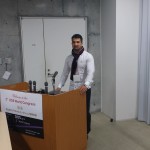
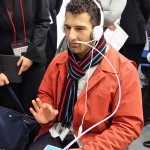
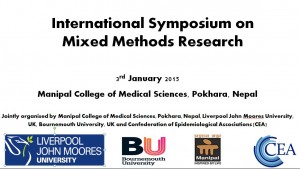
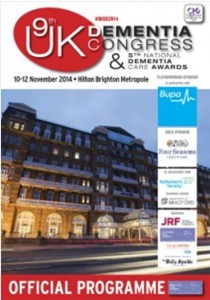
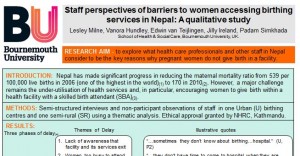
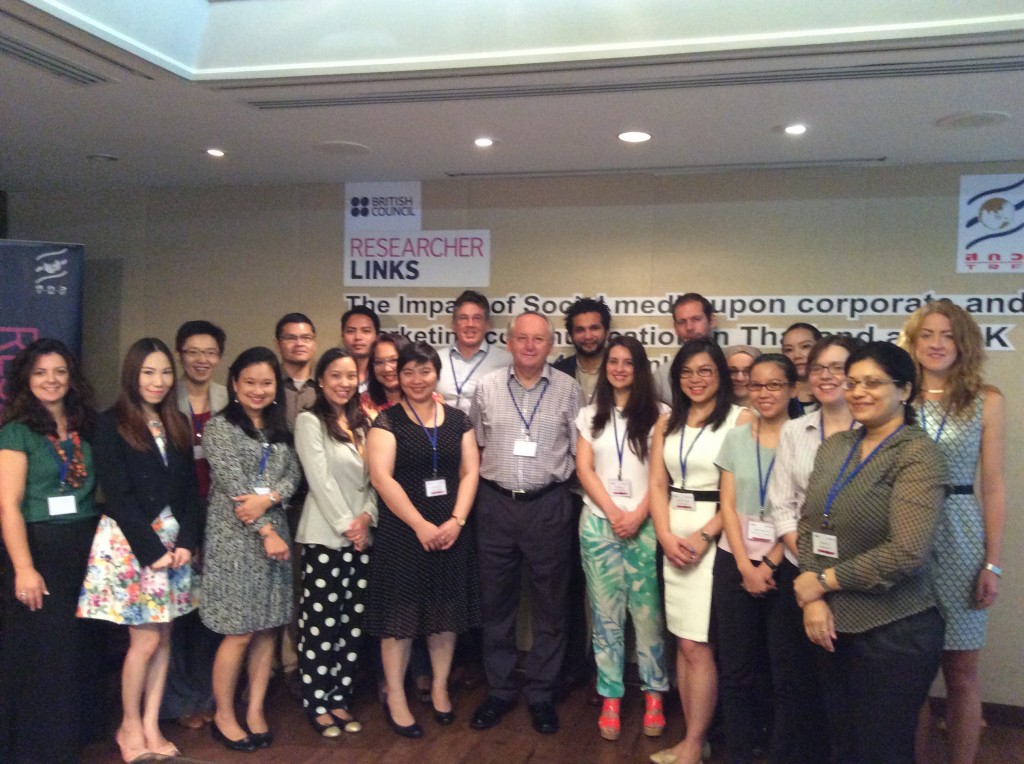
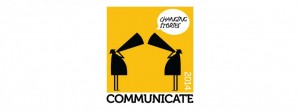











 Dr. Ashraf cited on ‘Modest Fashion’ in The Guardian
Dr. Ashraf cited on ‘Modest Fashion’ in The Guardian NIHR-funded research launches website
NIHR-funded research launches website Academics write for newspaper in Nepal
Academics write for newspaper in Nepal New paper published on disability in women & girls
New paper published on disability in women & girls Global Consortium for Public Health Research 2025
Global Consortium for Public Health Research 2025 MSCA Postdoctoral Fellowships 2025 Call
MSCA Postdoctoral Fellowships 2025 Call ERC Advanced Grant 2025 Webinar
ERC Advanced Grant 2025 Webinar Horizon Europe Work Programme 2025 Published
Horizon Europe Work Programme 2025 Published Horizon Europe 2025 Work Programme pre-Published
Horizon Europe 2025 Work Programme pre-Published Update on UKRO services
Update on UKRO services European research project exploring use of ‘virtual twins’ to better manage metabolic associated fatty liver disease
European research project exploring use of ‘virtual twins’ to better manage metabolic associated fatty liver disease